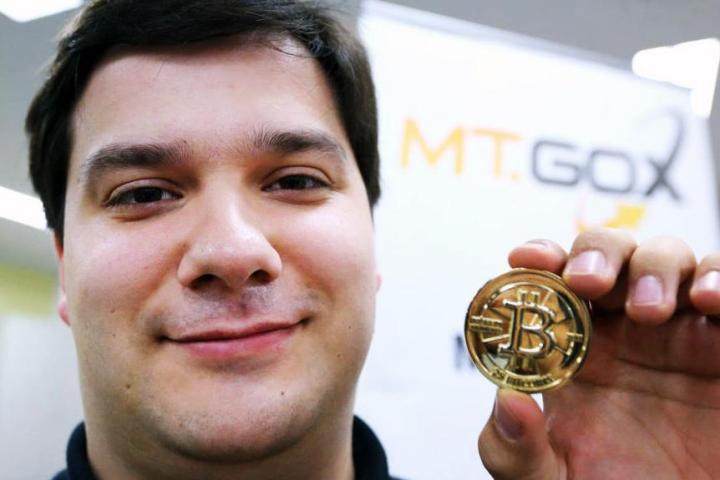
On Friday, Tokyo-based Bitcoin exchange Mt. Gox filed for bankruptcy protection in a Japanese court, after losing about 850,000 Bitcoins (BTC), 750,000 of which belonged to its customers. The loss equals roughly $475 million, at current exchange rates.
The failures of Mt. Gox – once the world’s largest Bitcoin exchange, which shut down its site on Monday – has left an untold number of casualties in its wake. Many Mt. Gox users lost hundreds of thousands of dollars. Some claim to have lost millions. And with the company still $65 million debt (that’s in addition to the lost Bitcoin), 127,000 Mt. Gox creditors are now reportedly in bankruptcy.
Despite this supreme blow to the industry and its users, Bitcoin is not dead. It’s not even dying. But it is licking its wounds. And the question now is, when the bandages finally come off, will average people still want to look at Bitcoin?
Bitcoin is not dead. It’s not even dying. But it is licking its wounds.
Whatever happened, roughly 7 percent of all Bitcoins in existence appear to no longer belong to their rightful owners – incompetence, and a lack of proper security and business acumen appear to be the culprit.
“First of all, I’m very sorry,” Mark Karpeles, the 28-year-old CEO of Mt. Gox, told the Tokyo court. “The Bitcoin industry is healthy and it is growing. It will continue, and reducing the impact is the most important point.”
By most counts, the impact of Mt. Gox’s supreme failure could come in two forms: The first is a hellfire of government regulation, which already includes a call for an outright ban on the cryptocurrency in the U.S. – something Federal Reserve Chair Janet Yellen correctly says is essentially impossible thanks to Bitcoin’s decentralized nature. (No one bank, country, or other entity controls Bitcoin.) That said, the European Union and China have already imposed greater limitations on Bitcoin – and a further twisting of the knife could send the digital currency into a tailspin.
The second possible impact is much more promising, if risky for average investors: The Bitcoin industry, which is currently subject to relatively limited regulation in the U.S., U.K. and much of the world, will simply sort itself out. Indeed, many see the purging of Mt. Gox from the Bitcoin ecosystem as the push the industry needed to mature, and reestablish the trust of current and potential Bitcoin users.

“’That which does not kill us makes us stronger’ very much applies to Bitcoin, and the downfall of a single (though large) Bitcoin business is not enough to ‘kill’ Bitcoin,” writes Tom Robinson, a well-known software engineer and Bitcoin expert. “This type of event has happened before. We learn a tough lesson and carry on, strengthening the weakest links as we go.”
A number of companies have already begun to embody the second generation of Bitcoin business. Many would count Coinbase, Kraken, and Circle among the “good” Bitcoin businesses. And it is no accident that these companies, along with BTC China, Bitstamp, and Blockchain.info, were the first in the industry to formally respond to the collapse of Mt. Gox.
“This tragic violation of the trust of users of Mt. Gox was the result of one company’s actions and does not reflect the resilience or value of Bitcoin and the digital currency industry,” the companies wrote in a joint statement. “There are hundreds of trustworthy and responsible companies involved in Bitcoin. These companies will continue to build the future of money by making Bitcoin more secure and easy to use for consumers and merchants.”
You could read that statement as simple damage control – but it also reveals that these companies know exactly what the Bitcoin industry needs if it is to survive: Trust, security, and greater transparency.
“‘That which does not kill us makes us stronger’ very much applies to Bitcoin.”
“If you want to buy and sell Bitcoin you have to go through one of the members, and the members are all going to be regulated businesses,” Silbert told CoinDesk. “They’ll be banks, they’ll be MSBs, they’ll be Bitcoin companies, they’ll be broker dealers. The idea is the other exchanges of the world could actually become members of the exchange.”
No matter how trustworthy or well-run any of these businesses are, security will remain a primary concern – and a problem that is likely impossible to ever solve completely. Theft and fraud will continue, just as it does in any monied industry. It is still entirely possible that the governments of the world will work out a way to impose crippling regulation on the Bitcoin industry. There will be more losses, blunders, and failed Bitcoin businesses. But even from where I sit, as a Bitcoin skeptic, there is good reason to believe that the implosion of Mt. Gox leaves the world of cryptocurrencies healthier than it was last week. For now, though, the prudent option is to lean back, and wait to see if the cancer can remain in remission.


